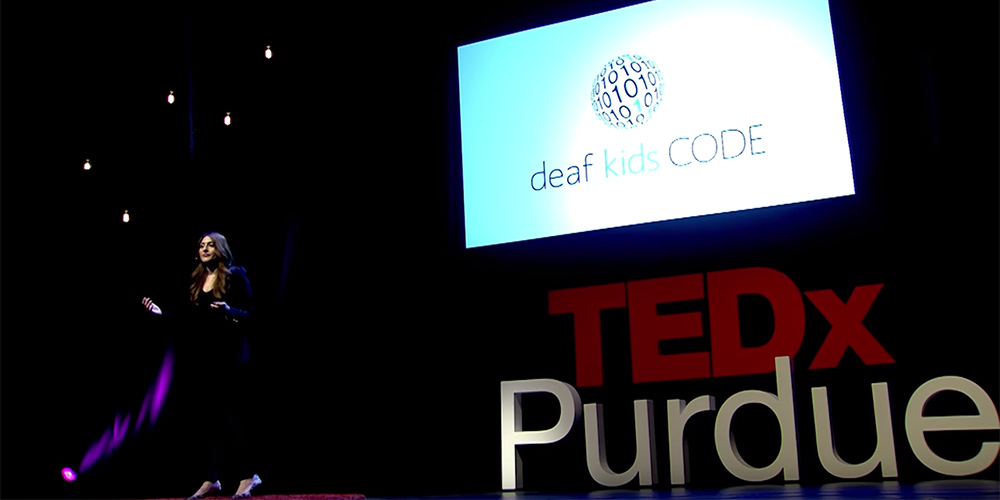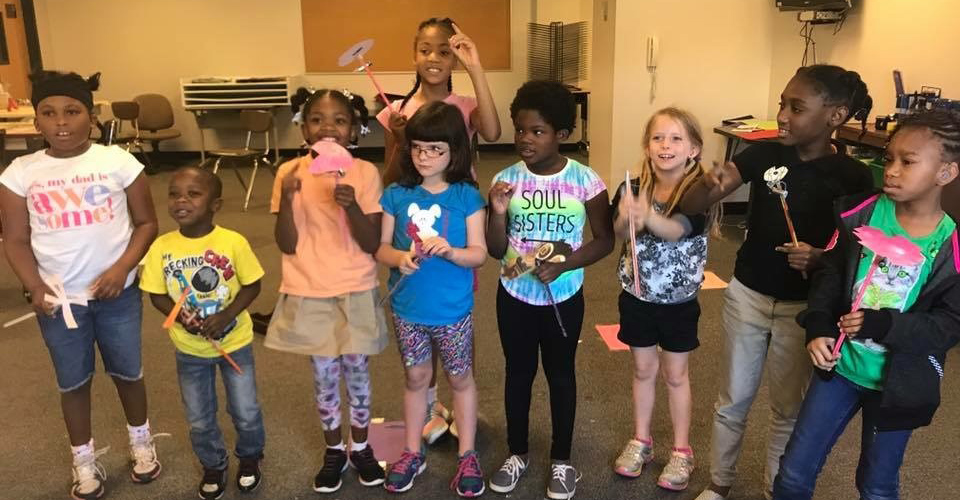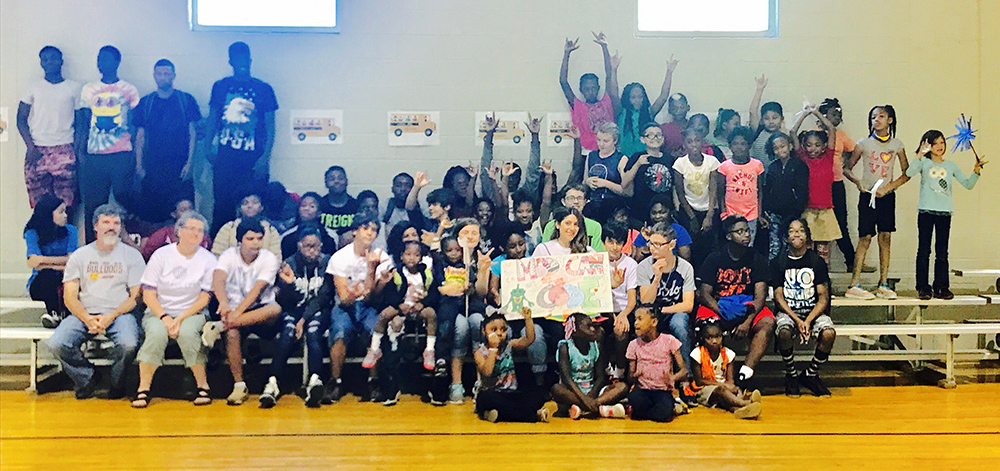Shireen Hafeez is the founder of Deaf Kids Code, a nonprofit working to bridge the economic and social gaps among deaf children and adults.
She has been an advocate and lobbyist for deaf kids because her own son is deaf – and she believes that computer science, technology, and design thinking skills can break down the barriers that have prevented deaf people in the past from getting jobs and fully participating in society.

In her workshops, Hafeez will often ask her deaf students to make something useful in a few hours from the big can of recyclable garbage she dumps onto the classroom floor. The kids will take items – like berry cartons and cereal boxes – and after a quick hardware tutorial, are able to assemble and wire their trash into programmable creations.
By using Blockly programming languages, Hafeez then teaches her students how to create complex command sequences. In no time, they are coding – and their creations are moving in response.
“Computer programing is global and visual. It’s a visual voice to the world,” Hafeez says. “These kids may not know the word ‘algorithm,’ but they can produce one. This is project-based learning – and it’s accessible to them. They walk away inspired, more confident.”
You can see these great projects in Hafeez’s TedxPurdueU Talk, in which Hafeez shares her powerful story.
Deaf Kids Code is a Dell Youth Learning partner. Dell provides grant funding and our technology.
Less than one percent of the students Hafeez works with have prior experience with computers. This doesn’t hinder a kid’s ability to learn code, she says, and neither does being deaf. In fact, deaf and hard-of-hearing children can excel at coding by leveraging the skills they use to tackle daily challenges.
“Our children are natural innovators, problem solvers, and visionaries because they are navigating in a world that does not bend towards inclusion or accessibility. Because of their ability to function on those levels, they are natural creative thinkers,” Hafeez says. “It’s extraordinary what they can do with these talents.”

Also extraordinary, Hafeez’s work with deaf and hard-of-hearing children is tapping into a big source of diverse talent for tech jobs.
One in eight people in the U.S. aged 12 or older has hearing loss in both ears, based on standard hearing examinations, according to the National Institute on Deafness and Other Communication Disorders. As Hafeez points out, deafness spans all races and genders, all faiths, national origins, and sexual orientations.
When 70 percent of people who are deaf or hard of hearing are unemployed, it’s imperative to enable greater social and economic participation by this population.
“When 70 percent of people who are deaf or hard of hearing are unemployed, it’s imperative to enable greater social and economic participation by this population,” Hafeez says, adding that if more companies allocate internships and shadowing opportunities for students with disabilities, the pipeline for diverse talent becomes more substantial.
Hafeez has hosted over 23 workshops in the past 12 months and has worked with over 650 students. There is a strong demand for Deaf Kids Code, she says, and strong results.
Following her workshops, over 95 percent of her workshop attendees report they can see themselves in a STEM-based career and that they want to continue learning more about coding.
Hafeez says, “Why not put our efforts towards empowering kids, like my son, with the skills the world needs? By building deaf and hard of hearing students’ skills and know-how, the employment gap can be impacted regardless of their auditory or communication challenges.”

This story shares one example of how Dell is committed to driving human progress by putting our technology and expertise to work where it can do the most good for people and the planet.
We invite you to explore our FY17 Annual update on our 2020 Legacy of Good Plan at legacyofgood.dell.com